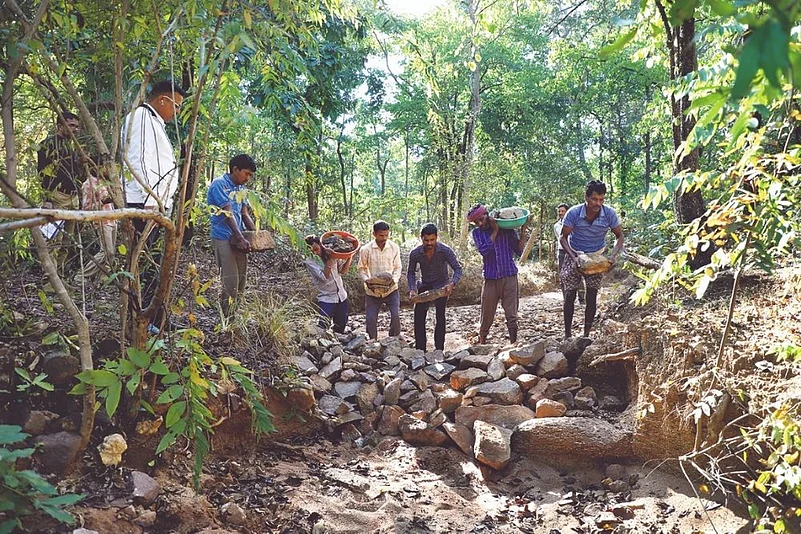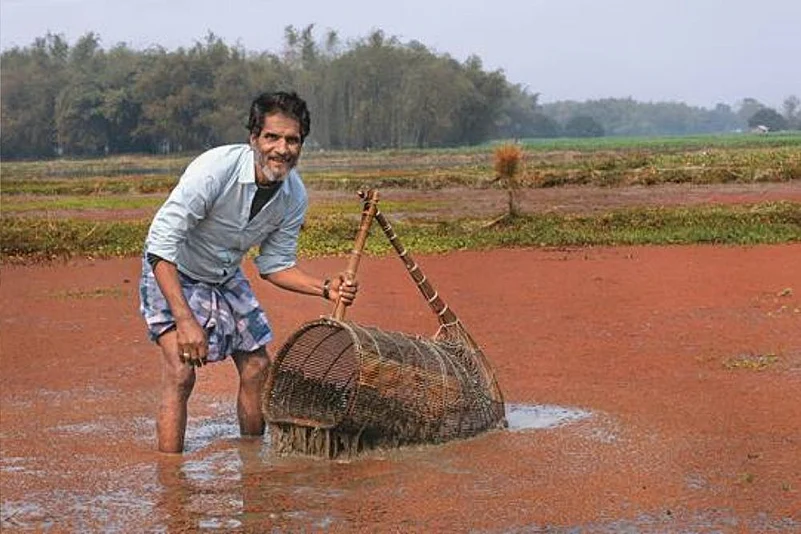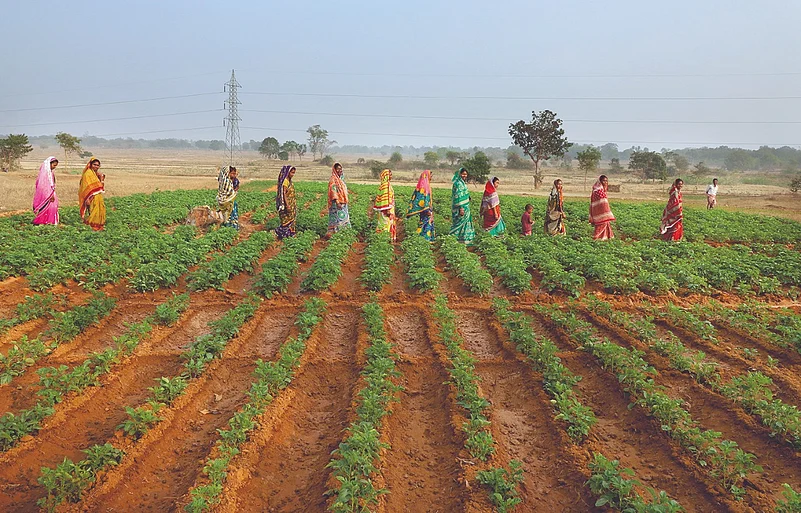About two-thirds of India’s 1.3 billion population is engaged in agriculture. Out of those, more than 85% come under the category of small and marginalized farmers, or simply put, those with less than two hectares of land. This huge section of the village population finds itself in a very volatile economy. The reasons are their limited resources, dependence on erratic monsoons, and agriculture being vulnerable to adverse effects of climate change.
In such a situation, protection of these small farmers is a pressing challenge. That’s where an intervention called the Infrastructure for Climate Resilient Growth (ICRG) comes in. It emerged in 2016 from collaboration between the UK Government and the Ministry of Rural Development in India. One of the central objectives of ICRG is to embed climate resilient strategies in the implementation of Mahatma Gandhi National Rural Employment Guarantee Act (MGNERGA) – the world’s largest social protection scheme.
Any person in a village can seek work under MGNREGA and has a guarantee of 100 days of work in a year. The work involves light manual labour and the daily wages are roughly around Rs 200. It’s not seen as a source of primary income but certainly as an important source of supplementary income, especially for women who can’t go out of the villages for work owing to a number of social reasons. With migrant labourers working in cities returning to their villages due to covid-19 lockdown, the reliance on MGNREGA for succour has risen steeply in villages. As per the latest figures, there are 120 million active workers under the scheme.

A loose boulder check dam under construction in Chhattisgarh. The team working on the dam will be paid for their hours through MGNREGA. (Photo: Suresh K Pandey/Outlook)
The ICRG has always been committed to making interventions at the very grassroots. In the same spirit, it tries to make the works under MGNREGA more in line with climate-resilient practices. The works in the employment scheme are usually related to irrigation, plantations, ground water recharge, and soil conservation. A driving idea behind ICRG is to take climate science to district, block and village levels. So far, it has been implemented in 103 blocks across 22 districts of Bihar, Chhattisgarh and Odisha. The initiative has benefited approximately 1.8 million people in these three states.

A farmer in Katihar, Bihar. (Photo: Suresh K Pandey/Outlook)
Furthermore, ICRG helps farmers make informed decisions about crop choices in view of climate change. So it’s providing knowhow on climate-resilient practices to not just MGNREGA works but also farming. Awareness about rights is another focus area of ICRG. That, teamed up with climate knowledge, empowers the village representatives to negotiate with district administration on fund disbursal, and channel it towards a more climate-conscious form of development.
This joint UK-India initiative has not only helped rural development but also made it more sustainable and enduring vis-à-vis climate change. The initiative has provided a way for vulnerable communities to secure their livelihoods, along with learning to guard themselves from the onslaught of climate change. World Environment Day is the perfect timing to acknowledge the importance of global cooperation and the power of countries joining hands to act as a force for good.
























